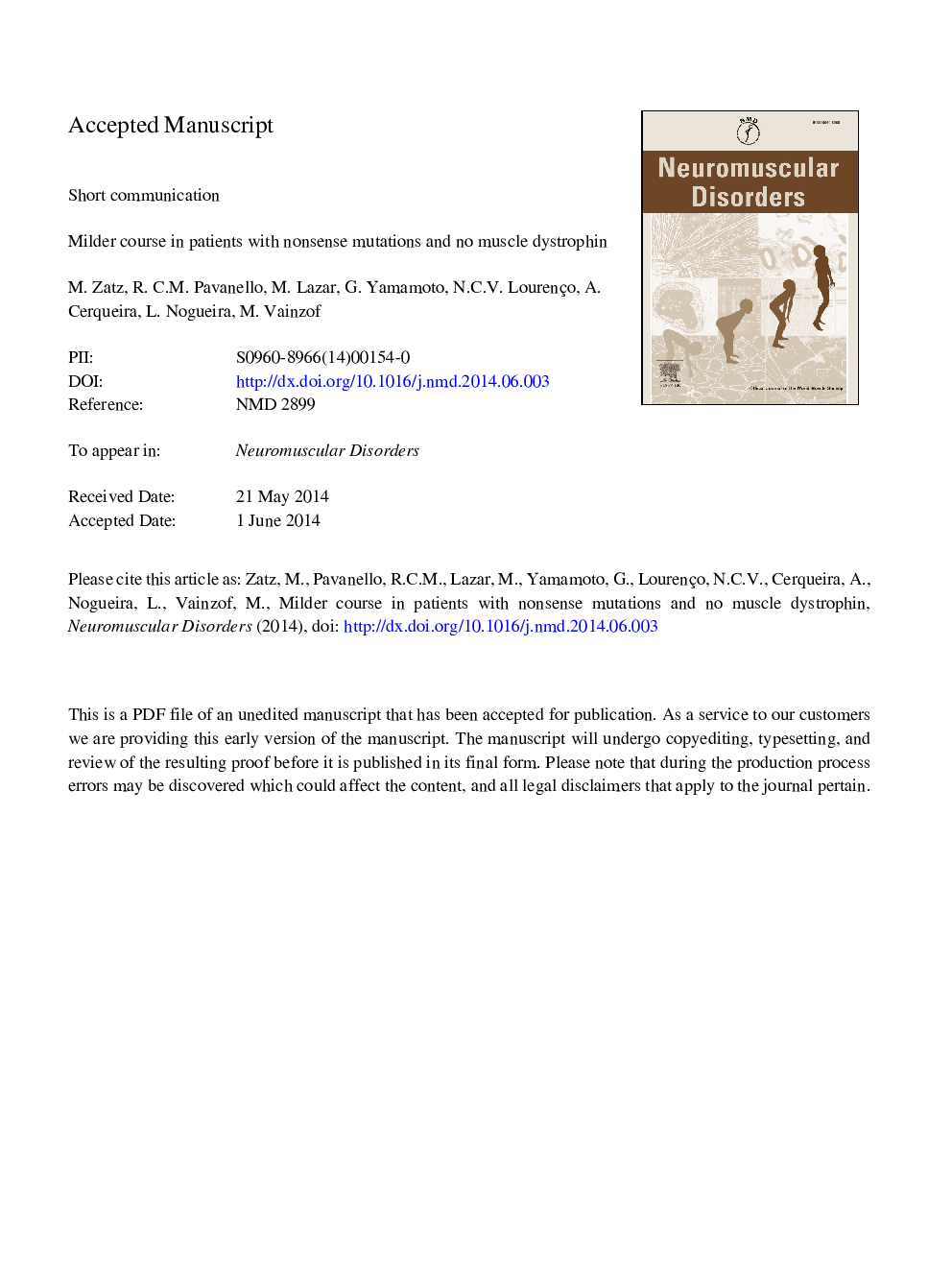| Article ID | Journal | Published Year | Pages | File Type |
|---|---|---|---|---|
| 6041336 | Neuromuscular Disorders | 2014 | 13 Pages |
Abstract
Duchenne muscular dystrophy (DMD), a severe and lethal condition, is caused by the absence of muscle dystrophin. Therapeutic trials aiming at the amelioration of muscle function have been targeting the production of muscle dystrophin in affected Duchenne patients. However, how much dystrophin is required to rescue the DMD phenotype remains an open question. We have previously identified two exceptional golden retriever muscular dystrophy (GRMD) dogs with a milder course despite the total absence of muscle dystrophin. Here we report two unusual patients carrying nonsense mutations in the DMD gene and dystrophin deficiency but with an unexpectedly mild phenotype. Three reported polymorphisms, respectively in genes LTBP4, SPP1 and ACTN3 were excluded as possible DMD genetic modifiers in our patients. Finding the mechanisms that protect some rare patients and dogs from the deleterious effect of absent muscle dystrophin is of utmost importance and may lead to new avenues for treatment. Importantly, these observations indicate that it is possible to have a functional large muscle even without dystrophin.
Keywords
Related Topics
Life Sciences
Neuroscience
Developmental Neuroscience
Authors
M. Zatz, R.C.M. Pavanello, M. Lazar, G.L. Yamamoto, N.C.V. Lourenço, A. Cerqueira, L. Nogueira, M. Vainzof,
